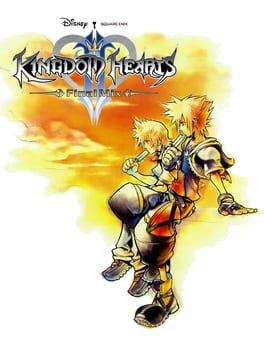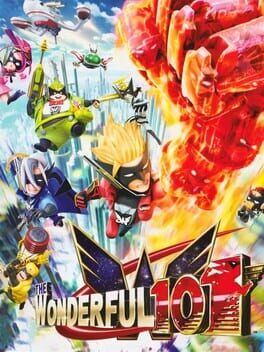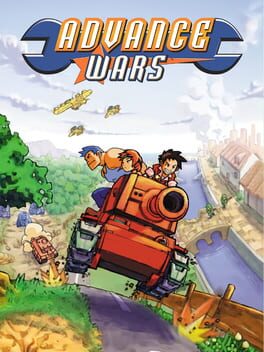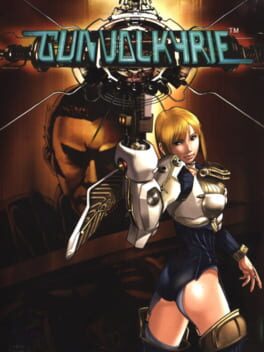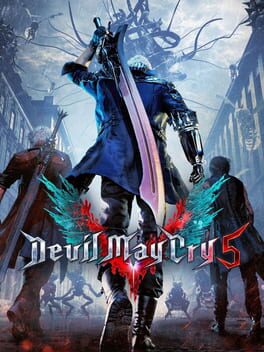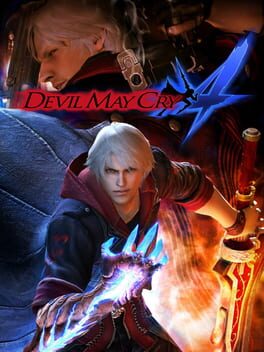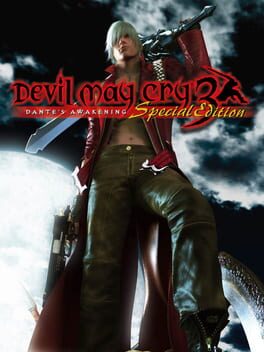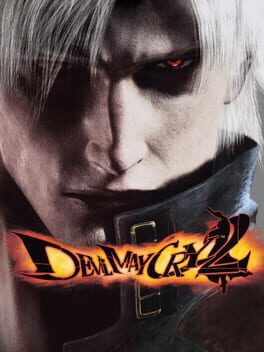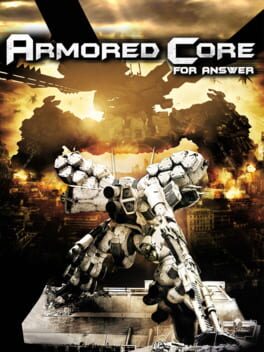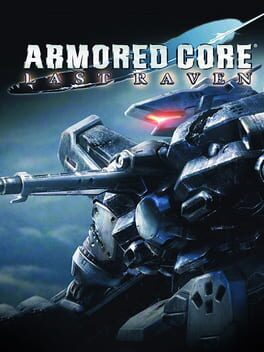wondermagenta
CW: Incest, assault, sexual violence
Spoilers for Chapter One.
Completed the first “door” and decided I wouldn’t finish the game; everything I say in this review is limited to that opening vignette. What’s set up here is certainly well-intentioned: three central characters, each on the verge of adulthood and trapped by the rigidly defined gender roles and class structures of their 1600s environment and bearing the weight of several conflicting needs. However, in the two hours I spent with Fata Morgana, the game world’s overarching patriarchal capitalist system isn’t seriously interrogated or explored. There are a number of supporting adult characters subtly maintaining the oppressive framework: the priest insisting Mell marry within his class, Nellie’s chosen fiancée Arthur, solely interested in keeping up appearances, Nellie and Mell’s parents, the owners of the house exerting their influence from afar; a larger societal order and hierarchy are clearly hinted at, offering a possible canvas for the game to seize upon the concrete mechanics undergirding this type of systematic oppression, perhaps even explore potential solutions. This isn’t something Fata Morgana seems to be interested in, however: the characters perpetuating the system either have no lines at all (the mother and father) or only speak from off-screen! We only receive surface-level insight into this world’s politics and social dynamics, which is enough to rationalize the chain of events presented in the plot, but bereft of any deeper knowledge or meaning for the reader to extract.
We’re therefore presented with a relatively narrow character drama. This isn’t a flaw with the story necessarily — whatever you end up focusing on, it just needs to be compelling somehow. Unfortunately, what we do get is incredibly banal squabbles and eyeroll-inducing escalations that feel designed for shock value rather than to provide deeper insight. “Why won’t you spend more time with me dearest brother, you’re the only one for me,” “Okay number one that’s weird (you’re my sister,) number two I just fell in love with this white-haired chick at first sight,” “Didn’t you tell me you haven’t even met her yet? 🤨” “Uhm uhm.” In a word, the level of emotional strife and disagreeing motivations here comes across as juvenile; you might say this is because these characters are literally kids and that that’s kind of the point, but that’s not actually what I mean. It feels quaint to be reading this unremarkable back-and-forth dialogue about who spends too much time with whom, who has feelings for whom and who is instantly bewitched by whose beauty in a game about conventionally attractive people regularly described as such; specifically when you have books and films like A Girl on the Shore or How to Have Sex that navigate what I find to be much more challenging and actually-applicable-to-real-life topics like the intersection of romance, the craving for bodily intimacy and self-worth in subtle, artful and original ways. I’m throwing around a lot of adjectives here so I hope you’ll just see where I’m coming from and not ask for more specific scene-analyses LOL but I suppose this point in particular I’d be curious to hear more thoughts on.
To get at least a little more specific, Nellie’s character is a painful example of the jealous-friendzoned-girl doing a textbook version of the “I’m gonna pull some strings to make my object of desire think he has no chance with the bitch I’m competing with” trope. The misunderstandings pile up in the exact way you’d expect, until Nellie, devastated by the arranged marriage looming over her head and Mell’s apathy toward the situation, suffers a psychotic episode in which she physically assaults the white-haired girl and makes an explicitly sexual, non-consensual advance toward her brother. Since I’m critiquing the effectiveness and value of this type of writing, I feel the need to point out that any given player’s reaction to this arc will be incredibly subjective. If Metacritic and backloggd are any indication, you’ll likely have left off with a much different impression than I did, and it may be hard to see where I’m coming from (maybe you can tell that this is very different from my usual mechanics-focused analyses and that I have to reason from a mostly emotional angle LOL.) The argument I will make is that Nellie is an undeniable victim of an oppressive system, and yet she’s the only character in this self-contained story to carry out serious physical violence against another victim; and to me this does not function as effective critique of the system! (Quick aside, I had a very similar issue with Last Night in Soho’s final third and that shit seems way less bad in comparison now LOL) Instead, it comes across as unsympathetic and callous. Nellie is not just trapped by the patriarchy, but her incestual feelings toward Mell, and rather than seriously explore the internal whirlwind and self-analysis you’d expect to be part of that experience in any kind of depth, it genuinely feels more-so used as a way to gross out the player and lean into incredibly distasteful “freaky” Yandere iconography.
I can lay out all the plot beats and see the themes that are being touched on and understand the rationalizations being presented, but it doesn’t change the fact that presentation is narrative just as much as that Wikipedia summary. And in presentation, moment-to-moment, what I played of Fata Morgana rarely reaches past shallow, puerile and cowardly. I say “rarely” because as eyeroll-worthy as the aforementioned love-at-first-sight dynamic between Mell and the white-haired girl is, once they did confess their feelings to each other I couldn’t help but be surprisingly endeared by the hopelessly romantic prose and sensitive staging employed by the scene. The strength, or lack thereof, of the white-haired girl’s grip over Mell’s neck is something visual novels are uniquely poised to convey, in this case by suddenly flipping between slight alterations in otherwise static illustrations and buoy them with careful descriptions of subtle movements and bodily expressions.
But I also said the game was cowardly, because I can’t help but question its worldview when it chooses to have the white-haired girl “disfigured” by Nellie and then completely refuses to show her on-screen again from that point forward. I already noted earlier that Fata Morgana places repeated emphasis on conventional beauty, and flirting with this topic so much while blatantly skirting around any kind of alternative portrayal seems damning in my eyes. Mell’s assurances that he’ll love her regardless of her appearance can only read as hollow when the game doesn’t even seem to love its own characters enough to give them that kind of respect.
Fata Morgana consisting of, to my knowledge, at least a few largely self-contained stories has me relatively confident in the validity of this review; the main game does not revisit this particular scenario past what I played from what I understand. You might still think that this is shaky ground for me to stand on, but the entire point I hope I made here is that as a storyteller, you’re communicating things to your audience from minute one. If this opening isn’t an accurate representation of the game as a whole, then what was the point of it? If I’m to expect crucial subversions deeper into the story, how am I supposed to believe that they are any more tasteful or substantive than the dramatic turns utilized here? If the game spends two hours on this completely unoriginal love triangle, how will it tackle more difficult subjects? I’ve experienced complete, rich stories in that time-span, stories that consider their themes just as much as their form. I can certainly have Fata Morgana’s themes explained to me by its fans and acknowledge the sincerity ultimately laying beneath, but what I really needed in those two hours is for Novectacle to convince me they’re equipped to tell this kind of story; and I can’t say that I am.
Spoilers for Chapter One.
Completed the first “door” and decided I wouldn’t finish the game; everything I say in this review is limited to that opening vignette. What’s set up here is certainly well-intentioned: three central characters, each on the verge of adulthood and trapped by the rigidly defined gender roles and class structures of their 1600s environment and bearing the weight of several conflicting needs. However, in the two hours I spent with Fata Morgana, the game world’s overarching patriarchal capitalist system isn’t seriously interrogated or explored. There are a number of supporting adult characters subtly maintaining the oppressive framework: the priest insisting Mell marry within his class, Nellie’s chosen fiancée Arthur, solely interested in keeping up appearances, Nellie and Mell’s parents, the owners of the house exerting their influence from afar; a larger societal order and hierarchy are clearly hinted at, offering a possible canvas for the game to seize upon the concrete mechanics undergirding this type of systematic oppression, perhaps even explore potential solutions. This isn’t something Fata Morgana seems to be interested in, however: the characters perpetuating the system either have no lines at all (the mother and father) or only speak from off-screen! We only receive surface-level insight into this world’s politics and social dynamics, which is enough to rationalize the chain of events presented in the plot, but bereft of any deeper knowledge or meaning for the reader to extract.
We’re therefore presented with a relatively narrow character drama. This isn’t a flaw with the story necessarily — whatever you end up focusing on, it just needs to be compelling somehow. Unfortunately, what we do get is incredibly banal squabbles and eyeroll-inducing escalations that feel designed for shock value rather than to provide deeper insight. “Why won’t you spend more time with me dearest brother, you’re the only one for me,” “Okay number one that’s weird (you’re my sister,) number two I just fell in love with this white-haired chick at first sight,” “Didn’t you tell me you haven’t even met her yet? 🤨” “Uhm uhm.” In a word, the level of emotional strife and disagreeing motivations here comes across as juvenile; you might say this is because these characters are literally kids and that that’s kind of the point, but that’s not actually what I mean. It feels quaint to be reading this unremarkable back-and-forth dialogue about who spends too much time with whom, who has feelings for whom and who is instantly bewitched by whose beauty in a game about conventionally attractive people regularly described as such; specifically when you have books and films like A Girl on the Shore or How to Have Sex that navigate what I find to be much more challenging and actually-applicable-to-real-life topics like the intersection of romance, the craving for bodily intimacy and self-worth in subtle, artful and original ways. I’m throwing around a lot of adjectives here so I hope you’ll just see where I’m coming from and not ask for more specific scene-analyses LOL but I suppose this point in particular I’d be curious to hear more thoughts on.
To get at least a little more specific, Nellie’s character is a painful example of the jealous-friendzoned-girl doing a textbook version of the “I’m gonna pull some strings to make my object of desire think he has no chance with the bitch I’m competing with” trope. The misunderstandings pile up in the exact way you’d expect, until Nellie, devastated by the arranged marriage looming over her head and Mell’s apathy toward the situation, suffers a psychotic episode in which she physically assaults the white-haired girl and makes an explicitly sexual, non-consensual advance toward her brother. Since I’m critiquing the effectiveness and value of this type of writing, I feel the need to point out that any given player’s reaction to this arc will be incredibly subjective. If Metacritic and backloggd are any indication, you’ll likely have left off with a much different impression than I did, and it may be hard to see where I’m coming from (maybe you can tell that this is very different from my usual mechanics-focused analyses and that I have to reason from a mostly emotional angle LOL.) The argument I will make is that Nellie is an undeniable victim of an oppressive system, and yet she’s the only character in this self-contained story to carry out serious physical violence against another victim; and to me this does not function as effective critique of the system! (Quick aside, I had a very similar issue with Last Night in Soho’s final third and that shit seems way less bad in comparison now LOL) Instead, it comes across as unsympathetic and callous. Nellie is not just trapped by the patriarchy, but her incestual feelings toward Mell, and rather than seriously explore the internal whirlwind and self-analysis you’d expect to be part of that experience in any kind of depth, it genuinely feels more-so used as a way to gross out the player and lean into incredibly distasteful “freaky” Yandere iconography.
I can lay out all the plot beats and see the themes that are being touched on and understand the rationalizations being presented, but it doesn’t change the fact that presentation is narrative just as much as that Wikipedia summary. And in presentation, moment-to-moment, what I played of Fata Morgana rarely reaches past shallow, puerile and cowardly. I say “rarely” because as eyeroll-worthy as the aforementioned love-at-first-sight dynamic between Mell and the white-haired girl is, once they did confess their feelings to each other I couldn’t help but be surprisingly endeared by the hopelessly romantic prose and sensitive staging employed by the scene. The strength, or lack thereof, of the white-haired girl’s grip over Mell’s neck is something visual novels are uniquely poised to convey, in this case by suddenly flipping between slight alterations in otherwise static illustrations and buoy them with careful descriptions of subtle movements and bodily expressions.
But I also said the game was cowardly, because I can’t help but question its worldview when it chooses to have the white-haired girl “disfigured” by Nellie and then completely refuses to show her on-screen again from that point forward. I already noted earlier that Fata Morgana places repeated emphasis on conventional beauty, and flirting with this topic so much while blatantly skirting around any kind of alternative portrayal seems damning in my eyes. Mell’s assurances that he’ll love her regardless of her appearance can only read as hollow when the game doesn’t even seem to love its own characters enough to give them that kind of respect.
Fata Morgana consisting of, to my knowledge, at least a few largely self-contained stories has me relatively confident in the validity of this review; the main game does not revisit this particular scenario past what I played from what I understand. You might still think that this is shaky ground for me to stand on, but the entire point I hope I made here is that as a storyteller, you’re communicating things to your audience from minute one. If this opening isn’t an accurate representation of the game as a whole, then what was the point of it? If I’m to expect crucial subversions deeper into the story, how am I supposed to believe that they are any more tasteful or substantive than the dramatic turns utilized here? If the game spends two hours on this completely unoriginal love triangle, how will it tackle more difficult subjects? I’ve experienced complete, rich stories in that time-span, stories that consider their themes just as much as their form. I can certainly have Fata Morgana’s themes explained to me by its fans and acknowledge the sincerity ultimately laying beneath, but what I really needed in those two hours is for Novectacle to convince me they’re equipped to tell this kind of story; and I can’t say that I am.
The more time passes, the harder it is to wrestle with how weird this game is to recommend. I want to tell all my sweaty action gamers to start on Critical and skip all the cutscenes, and I sincerely believe it’s the way to play, but I also realize that’s not a realistic experience whatsoever lmfao.
That intrusive thought verbalized, it doesn’t change how I feel about the game itself. Not sure I have more to add on top of what I said in this video: https://youtu.be/RYdFpv9Ay7o?si=XKNPVk13CDzhNzn8
That intrusive thought verbalized, it doesn’t change how I feel about the game itself. Not sure I have more to add on top of what I said in this video: https://youtu.be/RYdFpv9Ay7o?si=XKNPVk13CDzhNzn8
Doesn't find new innovative ways of taming the branching narrative game design hydra, but executes the style at a very high level of craftsmanship. The competing voices residing in the player character's head, growing more or less dominant depending on your skill distribution, are Disco's most clever idea, but they do ultimately reveal themselves to be a bit of an infinity mirror: in an organic playthrough, you can never gauge how cavernous these mechanics truly are and are forced to accept whatever cards you're dealt. My signature, most-developed skill (11 points) was Drama, and yet its actual presence in the conversations I experienced felt very muted, and the negative side effects the game teases for when you've developed a skill too far (in Drama's case, intense paranoia,) never manifested in my playthrough.
Disco also relies on many of the narrative/progression contrivances you'd expect: what revealed itself to be the murder case's crucial lead is something I discovered incredibly early into the story, yet you're not actually allowed to follow up on it until a specific late-game event trigger. In my playthrough it was extra bizarre in that I was told about this lead again by a different character, which then prompted the ability to further investigate, as if I hadn't already found the necessary clue myself fifteen hours earlier.
All of this adds up in a way where my actual agency in the plot is incredibly opaque, which in turn makes it difficult for me to fully invest myself in the experience. Yes, the stats and dice rolls literally matter in that they have direct, observable, mechanical effects, but it's hard to gauge how exactly they matter to me when the corresponding outcomes are ultimately still scripted and often somewhat unpredictable. It's hard to know how to feel when a skill check passes or fails because the outcome ultimately wasn't up to me: to put it uncharitably, rather than fully participating in and shaping the story, I'm sorta pressing buttons and seeing what happens.
Where Disco succeeds is in crafting situations that aren't necessarily "morally grey," as if that were the most compelling thing a CRPG could do -- the game is explicit about its leftist, socialist values and thankfully never succumbs to wishy-washy centrist mush -- but instead test your ability to remain resolute in your beliefs while also being sensitive and empathetic toward the world around you. It's a game that encourages you to embrace those voices in your head and not be afraid to be a little embarrassing or off-putting if it ultimately means doing the right thing. Don't let these fascists cramp your style!!
Disco also relies on many of the narrative/progression contrivances you'd expect: what revealed itself to be the murder case's crucial lead is something I discovered incredibly early into the story, yet you're not actually allowed to follow up on it until a specific late-game event trigger. In my playthrough it was extra bizarre in that I was told about this lead again by a different character, which then prompted the ability to further investigate, as if I hadn't already found the necessary clue myself fifteen hours earlier.
All of this adds up in a way where my actual agency in the plot is incredibly opaque, which in turn makes it difficult for me to fully invest myself in the experience. Yes, the stats and dice rolls literally matter in that they have direct, observable, mechanical effects, but it's hard to gauge how exactly they matter to me when the corresponding outcomes are ultimately still scripted and often somewhat unpredictable. It's hard to know how to feel when a skill check passes or fails because the outcome ultimately wasn't up to me: to put it uncharitably, rather than fully participating in and shaping the story, I'm sorta pressing buttons and seeing what happens.
Where Disco succeeds is in crafting situations that aren't necessarily "morally grey," as if that were the most compelling thing a CRPG could do -- the game is explicit about its leftist, socialist values and thankfully never succumbs to wishy-washy centrist mush -- but instead test your ability to remain resolute in your beliefs while also being sensitive and empathetic toward the world around you. It's a game that encourages you to embrace those voices in your head and not be afraid to be a little embarrassing or off-putting if it ultimately means doing the right thing. Don't let these fascists cramp your style!!
2013
Wonderful 101’s greatest asset is its incredibly nuanced and intrinsically enjoyable juggling system, which itself is buoyed by a very robust camera and control scheme, allowing for perfect consistency and multitasking in a way other genre titles so far haven’t matched. This unfortunately isn’t quite matched by how relatively formulaic the player-enemy interactions leading up to every juggle are. Also too many set-pieces. 😔
2001
2023
There is an interesting dance lying at the heart of this game between the increased randomness on its ranged options and the consistent but limited fallback option that is the knife parry. I suppose this does create less predictable outcomes: I fire off three shots with no stagger, consider switching to a different weapon, end up forced into a situation where I have to parry, might miss the parry or be forced to reposition myself if my durability is too low. That's sort of interesting and a meaningfully different flavor from the original, even if I can't think of a scenario where I would necessarily prefer it to that game's more proactive decision-making and accommodating feedback.
It gets bizarre when you consider the inclusion of several bandaids to allow the player to make things more consistent: the laser sight as well as weapons with varying levels of stagger, bloom and target acquisition speed. Some of these are further contingent on a new currency primarily earned through optional side quests, which themselves include highlights such as "kill five rats in every area of the game" or "shoot eight medallions in every area of the game." This certainly makes loadout options more diverse, but at least for me it's self-defeating in that I will always pick loadout options that make the game more consistent (read: more immediately and intrinsically enjoyable) and possibly feel pushed into engaging with side content I'm not actually interested in. This gets away from the original's pick-up-and-play appeal where all loadout options are "normalized" to the point that I can pick literally any weapon and have a blast.
This new approach to combat is definitely at its best when you're getting cumstered from all sides in the early game: rather than constantly cutting your path through the crowd like in the original, you're often forced to find safe ways to back away from it and not lock yourself into a bad position. However, just like the original, level design gets more constricted once we reach the island, and whereas that gives the 2005 version a refreshing bit of momentum in that final stretch, the remake seems to run out of ideas here: it's been a minute since release but my memories of that portion are a blur of tunnels with maybe two or three guys coming at me where I'd stand in the opposite corner and just pick them off. The less accommodating mechanics feel ill-suited to these ultra-basic fights.
One of the original's best qualities is how it constantly reinterprets its core mechanics for interstitial moments connecting the larger combat arenas: the cable car sequence, the Garrador cage fight, riding on the back of the disposal truck with Ashley, the U3 boss, etc. The remake either excises these entirely or replaces them with much more limited set-pieces like the now on-rails mine cart segment or the El Gigante ramparts escape scene, which feels like a much more modern AAA (derogatory) way of introducing variety and fails to utilize most of the mechanics on offer. This probably warrants a more nuanced scenario analysis than what I can offer here, but it can't help but feel like a much same-ier, soupier game across its run, which is disappointing given how strong the remake starts with all its small but meaningful subversions in the village section.
Still cool to see one of the most important games in my life reimagined this way and has too much RE4 DNA to not be pretty fun in the end, but I don't expect it to have a similar staying power.
It gets bizarre when you consider the inclusion of several bandaids to allow the player to make things more consistent: the laser sight as well as weapons with varying levels of stagger, bloom and target acquisition speed. Some of these are further contingent on a new currency primarily earned through optional side quests, which themselves include highlights such as "kill five rats in every area of the game" or "shoot eight medallions in every area of the game." This certainly makes loadout options more diverse, but at least for me it's self-defeating in that I will always pick loadout options that make the game more consistent (read: more immediately and intrinsically enjoyable) and possibly feel pushed into engaging with side content I'm not actually interested in. This gets away from the original's pick-up-and-play appeal where all loadout options are "normalized" to the point that I can pick literally any weapon and have a blast.
This new approach to combat is definitely at its best when you're getting cumstered from all sides in the early game: rather than constantly cutting your path through the crowd like in the original, you're often forced to find safe ways to back away from it and not lock yourself into a bad position. However, just like the original, level design gets more constricted once we reach the island, and whereas that gives the 2005 version a refreshing bit of momentum in that final stretch, the remake seems to run out of ideas here: it's been a minute since release but my memories of that portion are a blur of tunnels with maybe two or three guys coming at me where I'd stand in the opposite corner and just pick them off. The less accommodating mechanics feel ill-suited to these ultra-basic fights.
One of the original's best qualities is how it constantly reinterprets its core mechanics for interstitial moments connecting the larger combat arenas: the cable car sequence, the Garrador cage fight, riding on the back of the disposal truck with Ashley, the U3 boss, etc. The remake either excises these entirely or replaces them with much more limited set-pieces like the now on-rails mine cart segment or the El Gigante ramparts escape scene, which feels like a much more modern AAA (derogatory) way of introducing variety and fails to utilize most of the mechanics on offer. This probably warrants a more nuanced scenario analysis than what I can offer here, but it can't help but feel like a much same-ier, soupier game across its run, which is disappointing given how strong the remake starts with all its small but meaningful subversions in the village section.
Still cool to see one of the most important games in my life reimagined this way and has too much RE4 DNA to not be pretty fun in the end, but I don't expect it to have a similar staying power.
2002
2019
2008
2003
This one's for the zoomers.
Shockingly ambitious game with its clean graphics and relatively stable 60fps, giant multi-part bosses, destructible environments (with meaningful gameplay implications: shoot out bridges underneath foes, use fragile walls for cover) and weirdly technical quick boost mechanic reminiscent of GunValkyrie where chaining boosts requires you to vary up their direction with every input. Even leverages the PS3 and 360's analog triggers by letting you accelerate and thrust at varying speeds.
Also highly arcade-pilled with its selectable and very powerful starting builds and an extremely tight and varied campaign. This still does feel like Armored Core -- thoughtful movement, cutthroat atmosphere and interesting subversions (that one mission where you blow up the port feels like you're the monster in a horror movie) -- but From left basically no element untouched as they re-envisioned their flagship series for the Bloom Gen. Didn't give me that puzzle solving satisfaction the building mechanics in the oldgen games elicited and can feel sorta samey across its run but this one definitely earns its reputation.
Also legitimately a DMC3-level course correction after AC4 felt like it was rushed out for the PS3's launch.
Shockingly ambitious game with its clean graphics and relatively stable 60fps, giant multi-part bosses, destructible environments (with meaningful gameplay implications: shoot out bridges underneath foes, use fragile walls for cover) and weirdly technical quick boost mechanic reminiscent of GunValkyrie where chaining boosts requires you to vary up their direction with every input. Even leverages the PS3 and 360's analog triggers by letting you accelerate and thrust at varying speeds.
Also highly arcade-pilled with its selectable and very powerful starting builds and an extremely tight and varied campaign. This still does feel like Armored Core -- thoughtful movement, cutthroat atmosphere and interesting subversions (that one mission where you blow up the port feels like you're the monster in a horror movie) -- but From left basically no element untouched as they re-envisioned their flagship series for the Bloom Gen. Didn't give me that puzzle solving satisfaction the building mechanics in the oldgen games elicited and can feel sorta samey across its run but this one definitely earns its reputation.
Also legitimately a DMC3-level course correction after AC4 felt like it was rushed out for the PS3's launch.
First Armored Core with UI that isn't dogshit.
Finally irons out most of the basic polish and structural issues that had been plaguing the series (seamless transitions between shop and assembly, UI can show many more parts at a time, dual analog controls, missions can be retried instantly, more engaging economy with arena bets and weapon value degradation) and couples it with a much tighter campaign where a similar number of total missions is spread across multiple playthroughs for those interested. Missions are still bite-sized but tend to show their hand harder and faster. Enemy ACs "cheating" the way they do is sorta cool for the initial shock factor, but knowing it isn't possible to build or move like that is somewhat unsatisfying in the long run. "Damocles Sword" premise has no real bearing on the mechanics but gives the game a much more engaging presentation and tone.
Doesn't necessarily obsolete what preceded it but feels like the peak of that style and the easiest one to recommend.
Finally irons out most of the basic polish and structural issues that had been plaguing the series (seamless transitions between shop and assembly, UI can show many more parts at a time, dual analog controls, missions can be retried instantly, more engaging economy with arena bets and weapon value degradation) and couples it with a much tighter campaign where a similar number of total missions is spread across multiple playthroughs for those interested. Missions are still bite-sized but tend to show their hand harder and faster. Enemy ACs "cheating" the way they do is sorta cool for the initial shock factor, but knowing it isn't possible to build or move like that is somewhat unsatisfying in the long run. "Damocles Sword" premise has no real bearing on the mechanics but gives the game a much more engaging presentation and tone.
Doesn't necessarily obsolete what preceded it but feels like the peak of that style and the easiest one to recommend.

